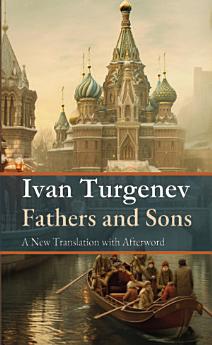Fathers and Sons
About this ebook
This work introduced the world to the concept of Nihilism (a term coined by Turgenev) and foreshadows great works of Russian literature such as Crime and Punishment. The central character of Fathers and Sons, Eugene Bazarov, often hailed as the "first Bolshevik" in Russian literature, became a symbol of both praise and ridicule, alternately seen as the embodiment of the "new men" of the 1860s. Turgenev's novel explored the clash between the older generation, resistant to change, and the nihilistic youth. Through the character of Bazarov, Turgenev created a quintessential representation of the mid-nineteenth-century nihilist. Fathers and Sons is set in the tumultuous six years between Russia's defeat in the Crimean War and the emancipation of the serfs.
Turgenev's exploration of generational conflict is not limited to ideological debates, but also probes deep emotional undercurrents, particularly the tension between filial love and intellectual independence. Bazarov’s relationship with his parents provides one of the novel’s most poignant subplots, revealing the human cost of radicalism. Despite Bazarov’s disdain for traditional values, Turgenev paints his relationship with his parents in a sympathetic light, reminding readers of the enduring importance of familial bonds, even in the face of ideological upheaval.
This critical reader's edition presents a modern translation of the original manuscript, crafted to help the reader engage directly with Turgenev's works through clean, contemporary language and simplified sentence structures that clarify his complex ideas. Supplementary material enriches the text with autobiographical, historical, and linguistic context, including an afterword on Turgenev’s history, impact, and intellectual legacy highlighting the personal relationships that shaped his philosophy (focusing on Dostoevsky, Tolstoy and Gogol), an index of the philosophical concepts he employs (emphasizing Realism and Nihilism) a comprehensive chronological list of his published writings, a brief biography, and a detailed timeline of his life.











